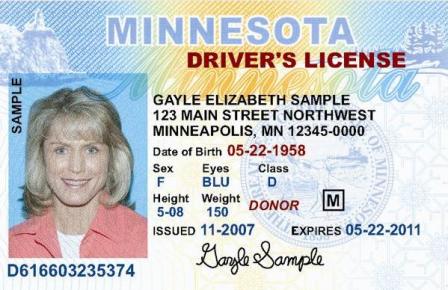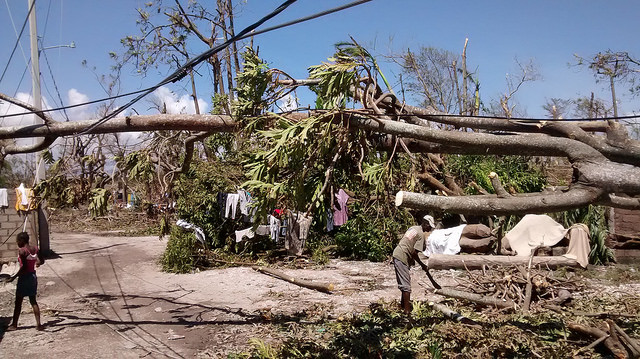
[Español abajo.]
On May 17, the Minnesota legislature approved a compromise in the REAL ID bill that does not include anti-immigrant language. They did NOT approve drivers licenses for undocumented immigrants and those licenses will not be issued.
REAL ID makes Minnesota law work with federal law, so that Minnesota drivers’ licenses can be used as identification in airports and other places. Under the new Minnesota law, Minnesota will have two classes of drivers’ licenses: compliant and non-compliant. Only a REAL ID-compliant license will be accepted for boarding a plane after next year.
People getting a drivers’ license can choose either kind. Only citizens and legal immigrants can get REAL ID-compliant licenses.
The legislature had three choices about licenses for unauthorized immigrants:
1) It could have used this law to allow issuing non-compliant licenses to unauthorized immigrants. This did not happen.
2) It could have used this law to forbid issuing any license to unauthorized immigrants. This did not happen.
3) It could have just left all language about immigrants out of the bill, leaving the current law in place. This was called a “clean” REAL ID bill. This is the bill that passed.
The REAL ID Conference Committee of 3 House members and 3 Senate members unanimously adopted compromise language on REAL ID that does not include anti-immigrant language. The House of Representatives voted 120-11 to approve this “clean” version. The Senate voted 57-8 to approve it. Governor Mark Dayton signed it into law.
Important note – There will still likely be efforts by House Republicans to put the anti-immigrant & anti-rulemaking for driver’s licenses language in a different bill, such as the Omnibus Judiciary/Public Safety budget bill. The governor vetoed the first Omnibus Judiciary/Public Safety bill on Monday 5/15. He said:
“This budget also has a controversial provision that was added into the conference report at the last minute relating to DPS’s authority to engage in rulemaking regarding lawful status for a driver’s license. As I have stated repeatedly, this language is not necessary because current law prohibits DPS from rulemaking without the Legislature’s prior approval.”
We will be watching to see what language goes into the next version of the omnibus bill. Everything happens very quickly at the end of the session. Sometimes new language is put in bills without public notice.
Please stay tuned! We will need your help to try to keep that anti-immigrant language out of any bill this year.
Noticias de REAL ID – 17 de mayo de 2017
El día 17 de mayo, la legislatura de Minnesota aprobó un compromiso en el proyecto de ley REAL ID que no incluye lenguaje antiinmigrante. No aprobaron licencias de conducir para inmigrantes indocumentados y esas licencias no serán emitidas.
REAL ID hace que la ley de Minnesota trabaje con la ley federal, por lo que las licencias de conducir de Minnesota pueden ser utilizadas como identificación en aeropuertos y otros lugares. Bajo la nueva ley de Minnesota, Minnesota tendrá dos clases de licencias de conducir: una clase de licencias que se ajusta a la ley federal y otra clase que no es conforme. Sólo se aceptará una licencia REAL ID en conformidad con el acuerdo de embarque en un avión después del próximo año.
La gente que consigue una licencia de conducir puede elegir cualquiera de las dos clases. Sólo los ciudadanos y los inmigrantes legales pueden obtener licencias REAL ID-compliant – las licencias que se ajusta a la ley federal.
La legislatura tenía tres opciones sobre licencias para inmigrantes no autorizados:
1) Podría haber utilizado esta ley para permitir la emisión de licencias no conformes a inmigrantes no autorizados. Esto no ocurrió.
2) Podría haber utilizado esta ley para prohibir la expedición de cualquier licencia a inmigrantes no autorizados. Esto no ocurrió.
3) Podría haber dejado todo el lenguaje de los inmigrantes fuera del proyecto de ley, dejando la ley actual en su lugar. Esto fue llamado un “limpio” REAL ID. Este es el proyecto de ley aprobado.
El Comité de la Conferencia REAL ID de 3 miembros de la Cámara y 3 miembros del Senado aprobaron por unanimidad un lenguaje de compromiso en REAL ID que no incluye lenguaje anti-inmigrante. La Cámara de Representantes votó 120-11 para aprobar esta versión “limpia”. El Senado votó 57-8 para aprobarlo.El gobernador Mark Dayton lo firmó como ley.
Nota importante – Todavía habrá esfuerzos por parte de los Republicanos de la Cámara para poner el lenguaje anti-inmigrante y prohibiendo reglas para las licencias de conducir en una proyecto de ley diferente, tal como la legislación Omnibus del Poder Judicial / Seguridad Pública. El gobernador vetó el proposito de Ley Omnibus Judicial / Seguridad Pública el lunes 5/15. El dijó:
“Este presupuesto también tiene una disposición polémica que se agregó en el informe de la conferencia en el último minuto en relación con la autoridad del DPS para participar en la reglamentación sobre el estatus legal para una licencia de conducir. Como he dicho repetidamente, este lenguaje no es necesario porque la ley actual prohíbe DPS de la reglamentación sin la aprobación previa de la Legislatura.”
Estaremos vigilando para ver qué lenguaje entra en la próxima versión de la legislación de omnibus. Todo sucede muy rápidamente al final de la sesión. A veces el nuevo lenguaje se pone en proyectos de ley sin aviso público.
¡Por favor manténgase al tanto! Necesitaremos su ayuda para tratar de mantener ese lenguaje anti-inmigrante fuera de cualquier proyecto de ley este año.








